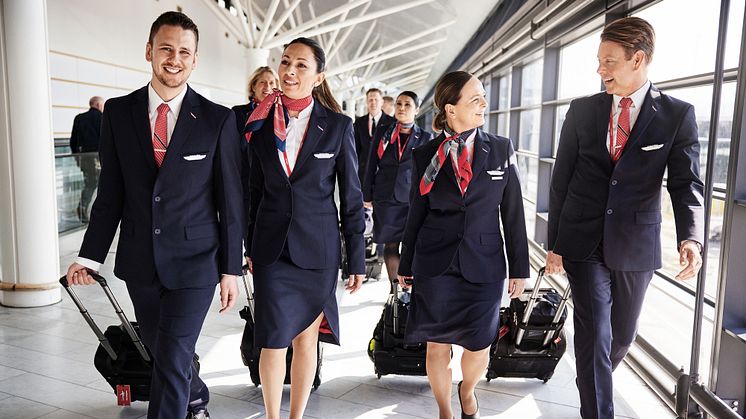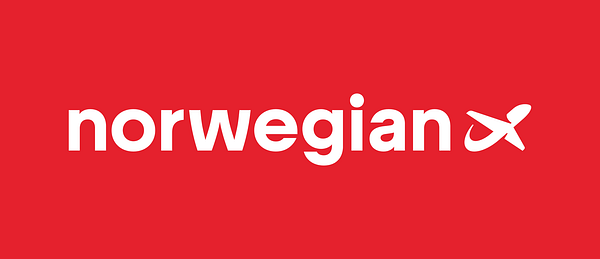
Press release -
The Norwegian Group had 1.8 million passengers in March
In March, Norwegian had 1,544,289 passengers, while Widerøe had 276,413 passengers, totalling 1,820,702 for the group. The load factor for Norwegian increased to 85 percent, up 4 percentage points compared to March last year. Norwegian recorded a strong regularity of 99.6 percent in March, while on-time performance also improved compared to previous months.
“We are delighted to publish strong traffic figures yet again, this month got an extra boost thanks to the early Easter holiday. The high regularity we had in March reflects the great work all our colleagues do every day to make sure our customers can trust Norwegian for all their travels. This is especially important over Easter with so many customers having planned their vacation trips, and I am proud to say that we had zero cancellations for all our international flights. We are now looking ahead to the next vacation season and are this week kicking off with a "Spring Sale" campaign. The booking trends for the summer season are beginning to look very good, but we naturally anticipate a weaker April as a result of the Easter holiday coming early this year,” said Geir Karlsen, CEO of Norwegian.
Norwegian had 1,544,289 passengers in March. The capacity (ASK) was 2,441 million seat kilometres, up 4 percent from the same period last year. Actual passenger traffic (RPK) was 2,075 million seat kilometres. In March, Norwegian operated an average of 73 aircraft with a regularity, meaning the share of scheduled flights taking place, of 99.6 percent. The punctuality, which is the share of flights departing within 15 minutes of scheduled time, was 86.7 percent, up 6 percentage points from March 2023.
Carbon emissions reducing
During March, CO2 emissions per actual passenger kilometre (grams of CO2 per RPK), was reduced by 10 percent compared to the same period last year. In total this amounts to a reduction of about 250,000 passenger round-trips from Oslo to Bergen.
“We are very pleased to see that our work to reduce carbon emissions is paying off. The newer fleet contributes to this, in combination with better planning resulting in higher a load factor. In addition, we are continuously working on optimising our flight patterns with the help of advanced digital tools, to further reduce fuel consumption. We have set an ambitious target of cutting emissions by 45 percent by 2030, and we believe that our combination of fleet renewal, operational efficiency and the use of sustainable aviation fuels (SAF) is the way to reach these targets,” said Geir Karlsen, CEO of Norwegian.
Widerøe had 276,413 passengers this month, while the load factor increased by 6 percentage points to 70 percent. This month also saw a marked improvement in operating performance with improving regularity and a strong punctuality of 89 percent.
Separate press release on Widerøe’s traffic figures is found at the Widerøe media centre. (In Norwegian only)
Topics
Categories
About Norwegian
The Norwegian group is a leading Nordic aviation company, headquartered at Fornebu outside Oslo, Norway. The company has over 8,200 employees and owns two of the prominent airlines in the Nordics: Norwegian Air Shuttle and Widerøe’s Flyveselskap. Widerøe was acquired by Norwegian in 2024, aiming to facilitate seamless air travel across the two airline’s networks.
Widerøe’s Flyveselskap, Norway’s oldest airline, is Scandinavia’s largest regional carrier. The airline has more than 3,500 employees. Mainly operating the short-runway airports in rural Norway, Widerøe operates several state contract routes (PSO routes) in addition to its own commercial network. In 2023, the airline had 3.3 million passengers and a fleet of 48 aircraft, including 45 Bombardier Dash 8’s and three Embraer E190-E2's. Widerøe Ground Handling provides ground handling services at 41 Norwegian airports.
The Norwegian group has sustainability as a key priority and has committed to significantly reducing carbon emissions from its operations. Among numerous initiatives, the most noteworthy is the investment in production and use of fossil-free aviation fuel (SAF). Norwegian strives to become the sustainable choice for its passengers, actively contributing to the transformation of the aviation industry.



